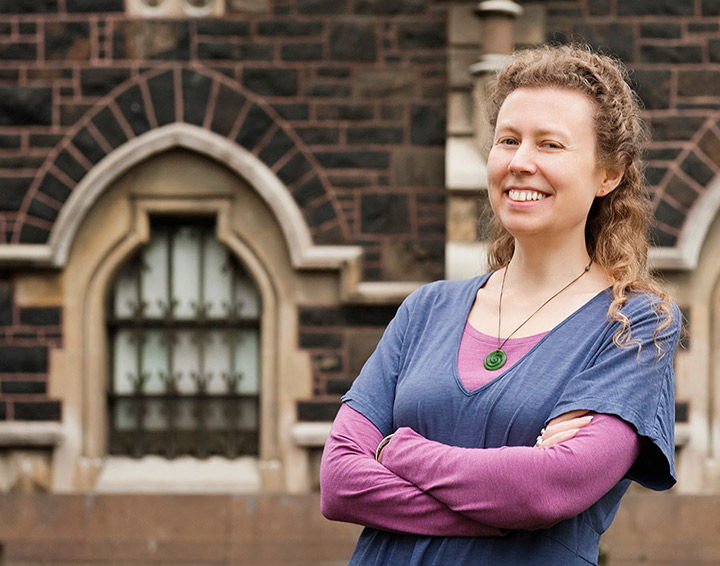Tuesday 15 May 2018 10:17pm

The Chairperson of the University’s Equity Advisory Committee Professor Christina Hulbe.
The University of Otago has underscored its commitment to supporting all students and staff in achieving their fullest potential – no matter their gender or gender identity, sexual orientation, ethnicity, marital status, age, religious belief, socioeconomic status or disability – with the introduction of a new Equity and Diversity Strategic Framework, and a new Equity and Diversity Policy.
These documents have been several years in the making – and are the result of hard work by the University’s Equity Advisory Committee.
The Committee, created in 2013, is made up of staff members from across the University’s Divisions who have a proven interest in this area, explains Chairperson Professor Christina Hulbe.
“Often with committees, you end up there because of your role; your job description,” Professor Hulbe says. “In this case people have been appointed because they have demonstrated an interest.”
Professor Hulbe says it’s vital that the University, as a critic and conscience of society, makes equity and diversity one of its guiding principles.
"The point of equity in the University setting is that we should support people to do their best work – whether they are a staff member or a student."
While establishing what exactly this would look like has been challenging – its aims are simple.
“The point of equity in the University setting is that we should support people to do their best work – whether they are a staff member or a student.”
Professor Hulbe says the Committee spent its first year gathering information, and concluded that while there were many things the University was doing well within this area – including strong commitments to the Māori and Pacific Strategic Frameworks and an excellent promotions policy and procedures, it was missing a cohesive, overarching policy in the equity and diversity space.
In order to create policy, the Committee took a robust look at what Otago was already doing, and also at how other New Zealand universities and Otago’s Matariki partner universities overseas were supporting equity and diversity goals.
“We wanted to figure out what a sensible framework and policy would look like for us here at Otago,” Professor Hulbe says.
“We had a lot of helpful conversations during the writing process. We paid attention to our values as a committee, to others’ concerns and to the language we used as we drafted the documents and went out for the final consultation round.”
The completed framework and policy encompass all aspects of equity and diversity including age, ethnicity, culture, disability, gender and gender identity, marital status, political opinion, religious belief, sexual orientation, socioeconomic status, and Māoritanga and Iwitanga, among other things. They also acknowledge that equity and diversity challenges and opportunities will continue to evolve as New Zealand society evolves.
The vision of the framework includes:
- Recognising Māori as tangata whenua and is committed to upholding Te Tiriti o Waitangi.
- Supporting a safe, supportive, respectful and inclusive environment for all members of its community and recognises its role in cultivating that environment.
- Achieving equity and diversity goals through an Action Plan and associated self-assessment.
- Valuing equity and diversity and opposes discrimination on the basis of individual attributes.
- Fulfilling the University’s legal obligations under all relevant national laws and adhere to UN declarations and conventions on human rights.
The policy itself aims to ensure that Otago’s processes and practices uphold and promote equitable outcomes, reflect an environment in which all individuals are valued and different ways of thinking are embraced, and in which diversity, inclusivity and respect are key components of the University’s overall commitment to excellence.
Professor Hulbe is proud of the documents, but stresses that what distinguishes best practice in the equity space is turning aspiration into action.
“You have to commit yourself to achieving it.”
In order to do this, the Committee is now working on an Action Plan.
“We’ve given ourselves this year to finish it up,” she says. “We don’t want to put forward something that isn’t the right fit for Otago.”
Get in touch:
The Equity Advisory Committee welcomes and values comments and enquiries. Contact Chairperson Professor Christina Hulbe, Email: christina.hulbe@otago.ac.nz
